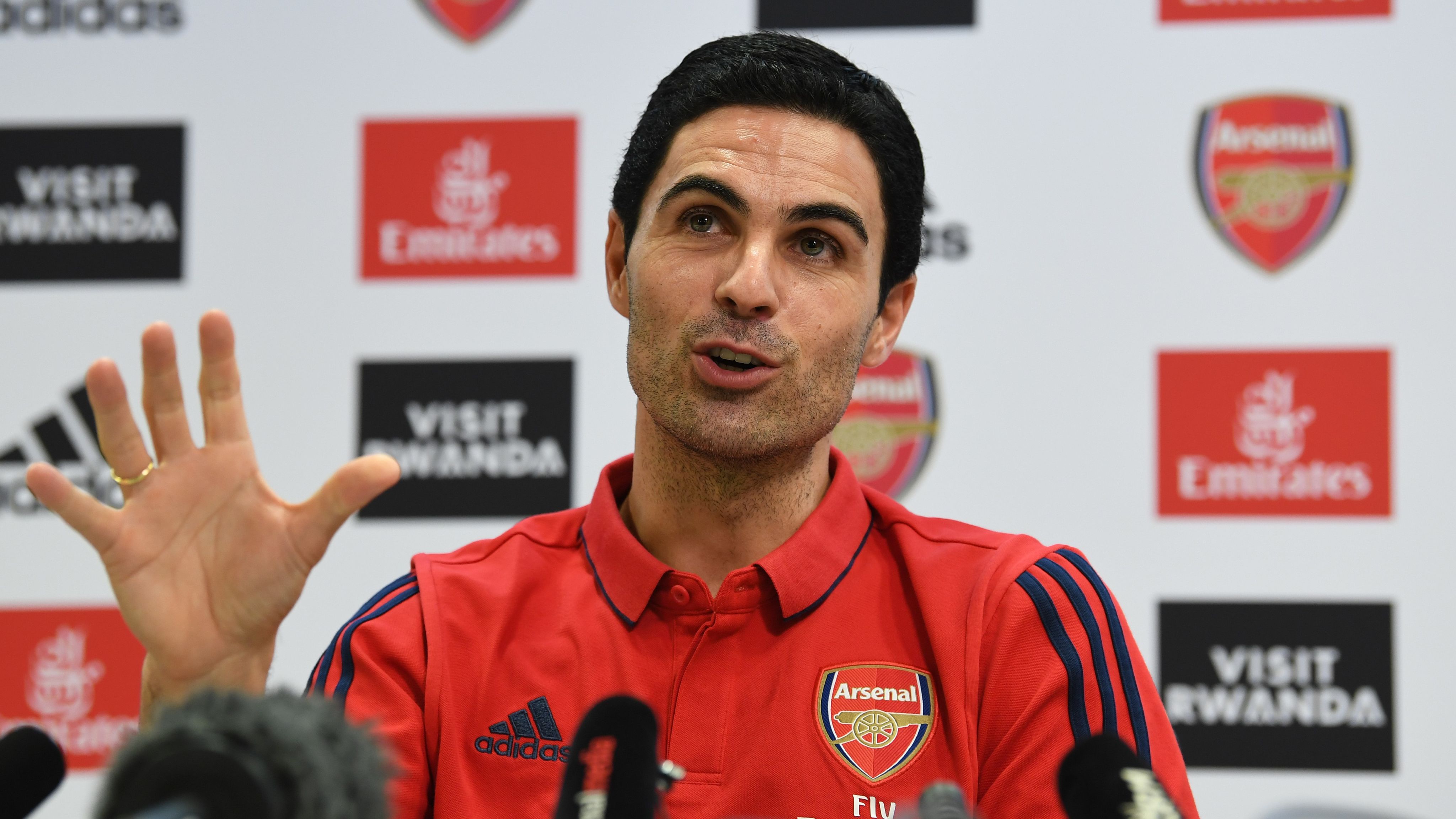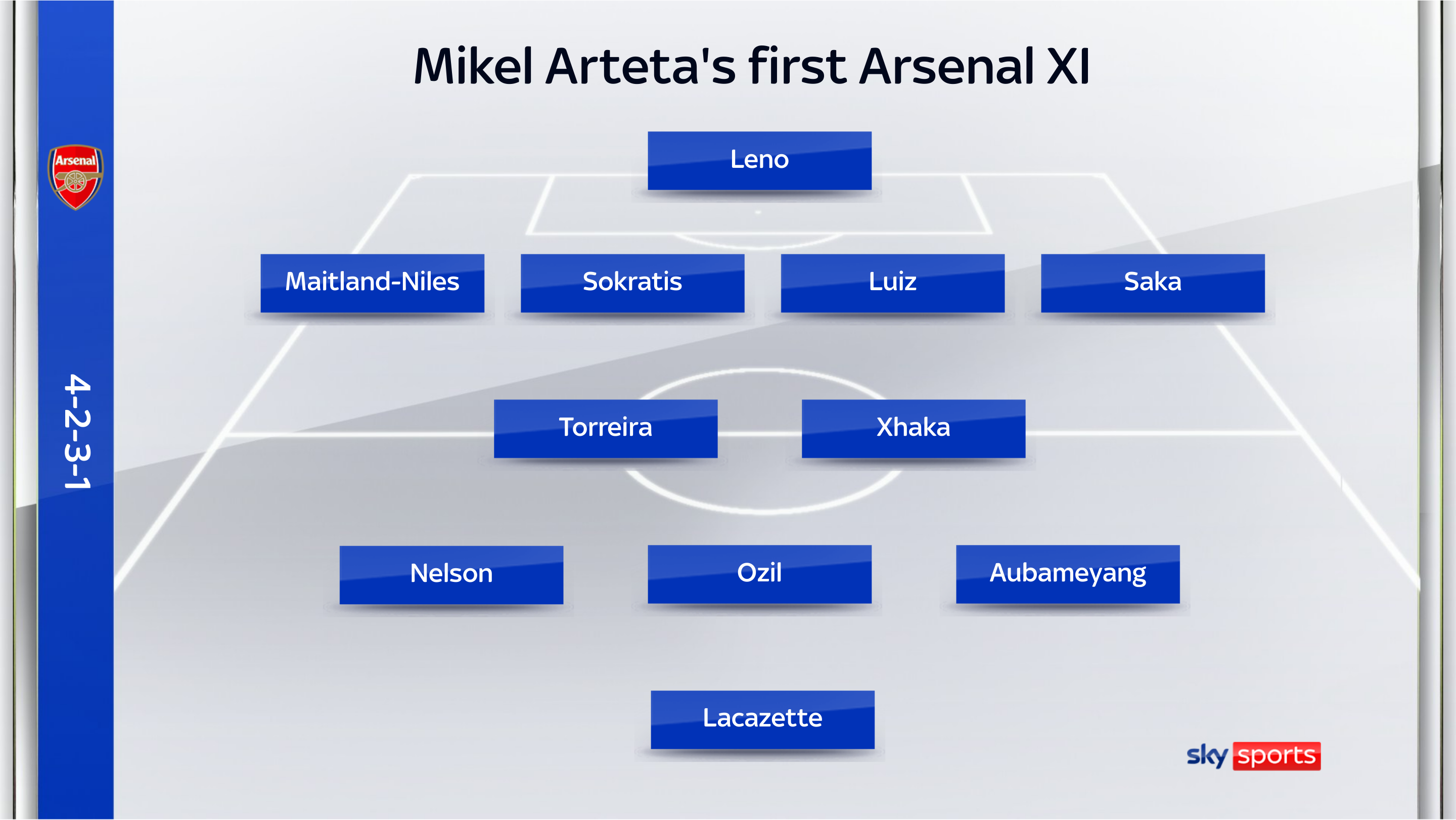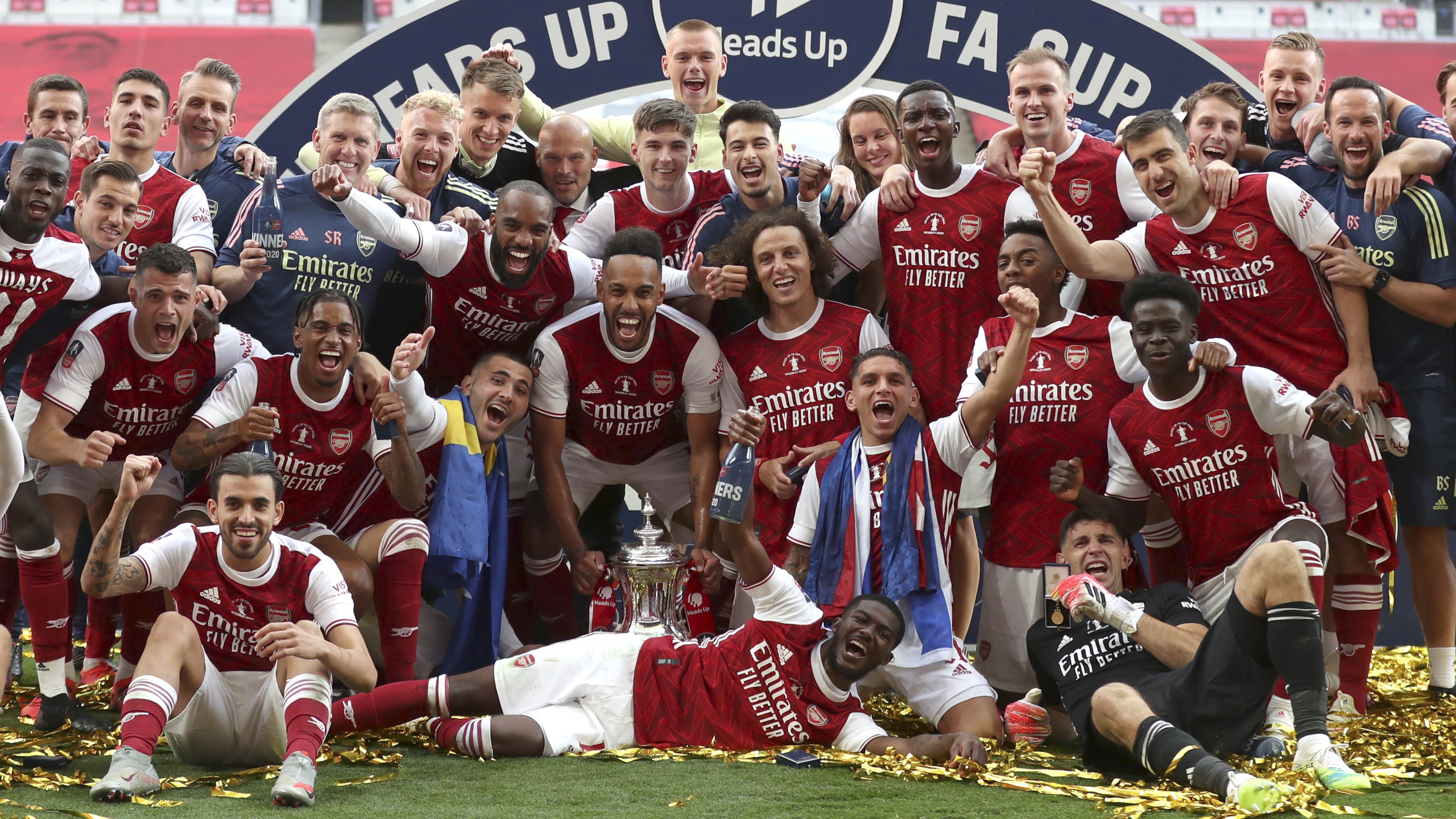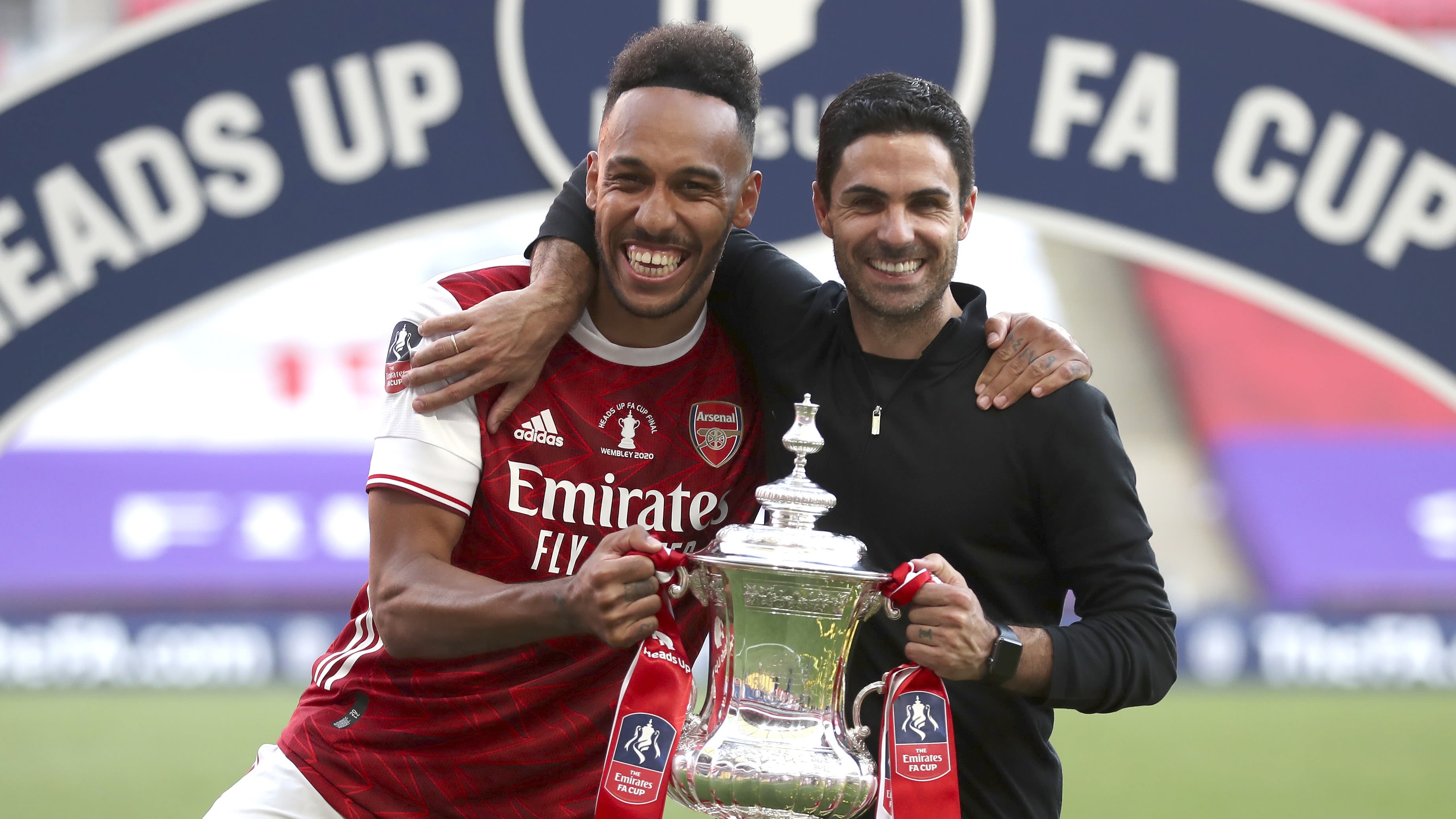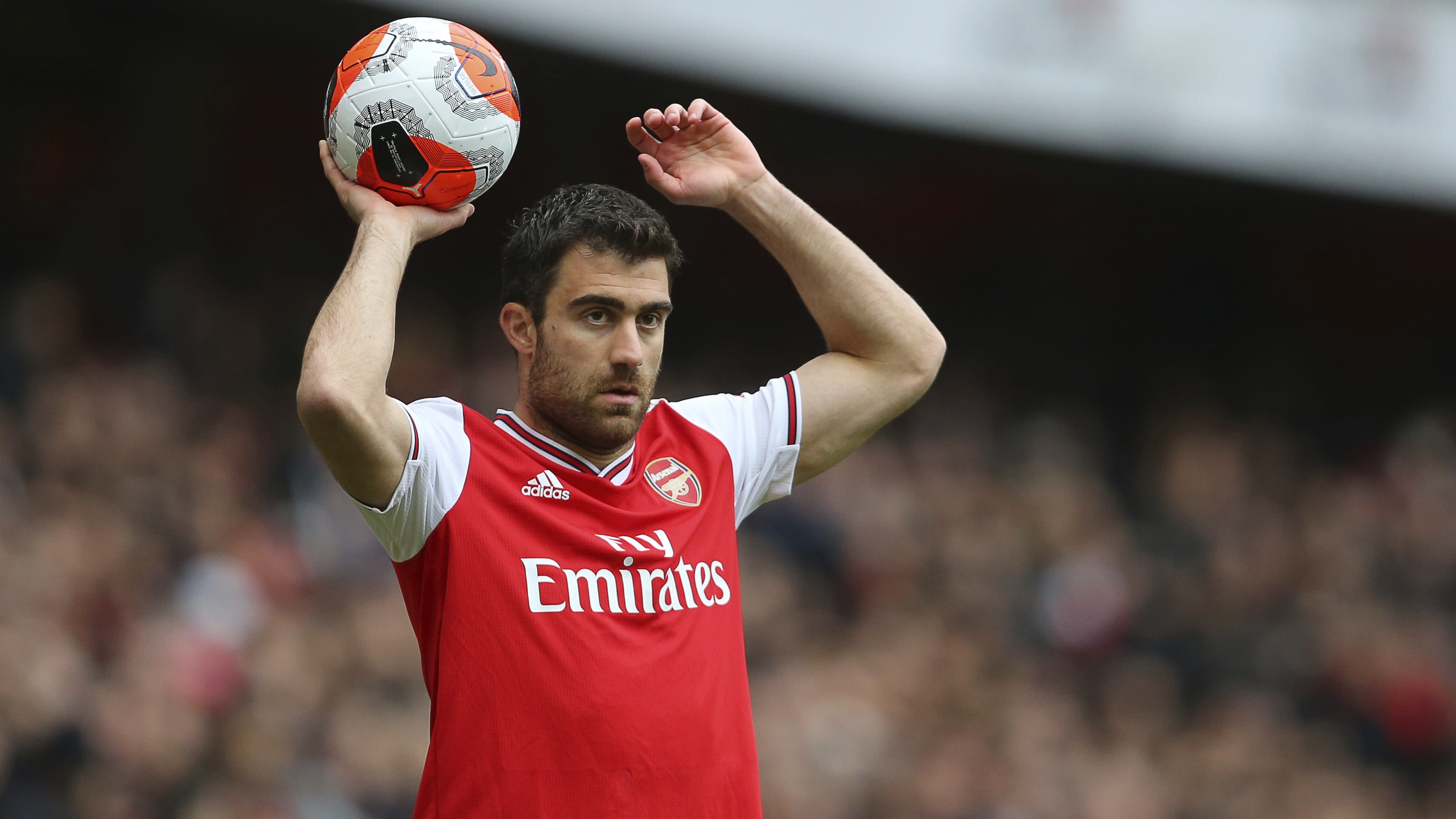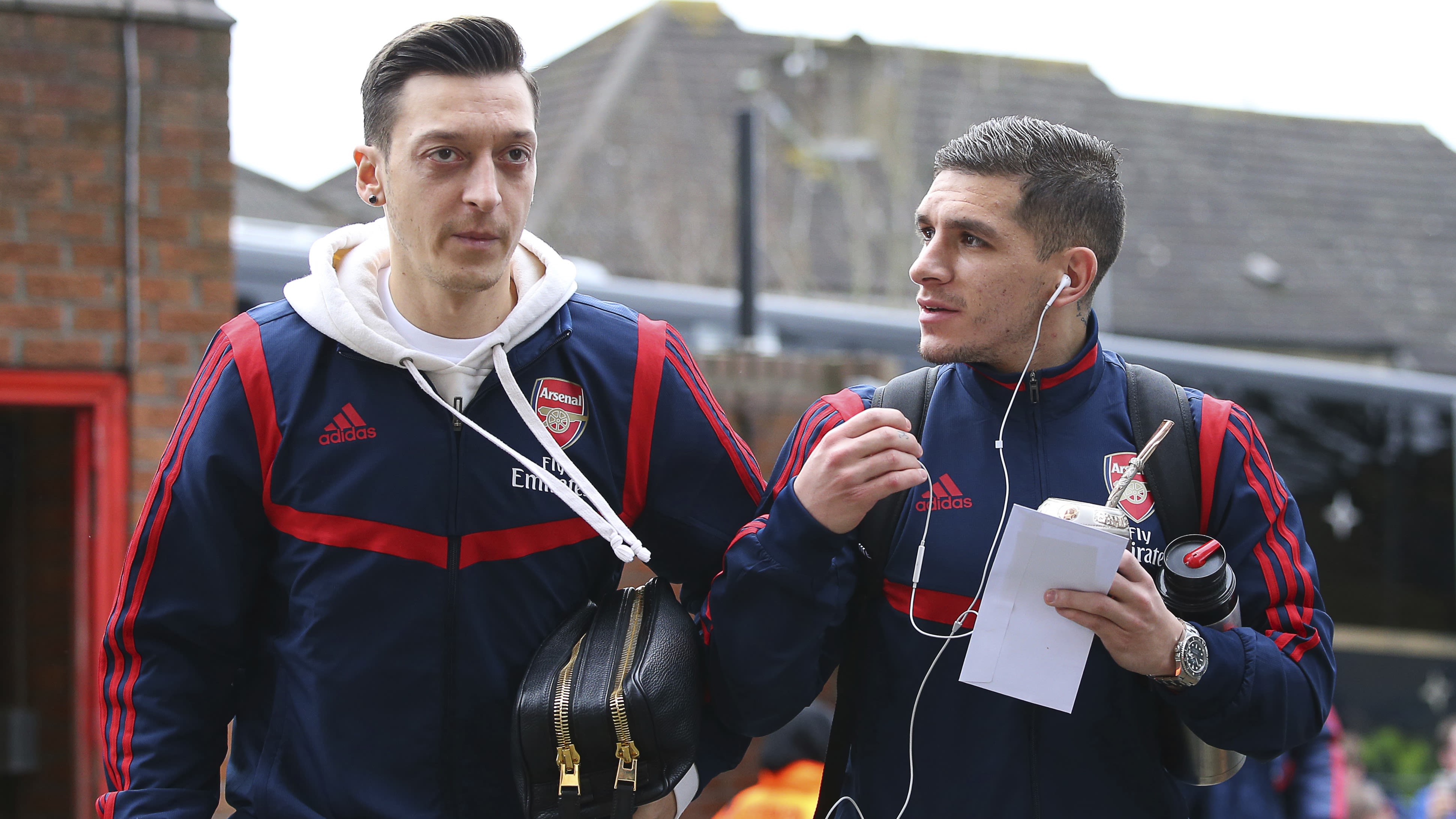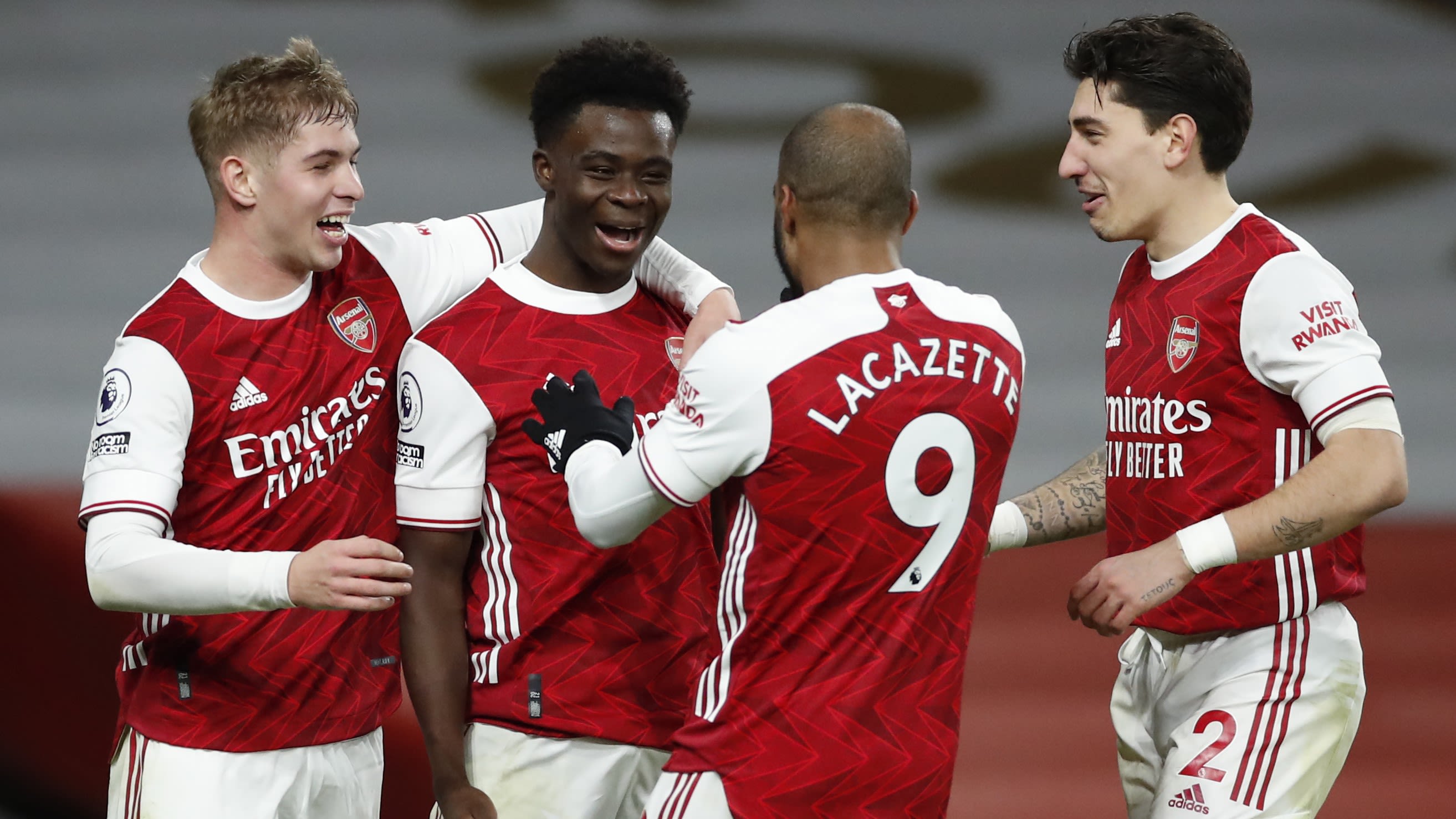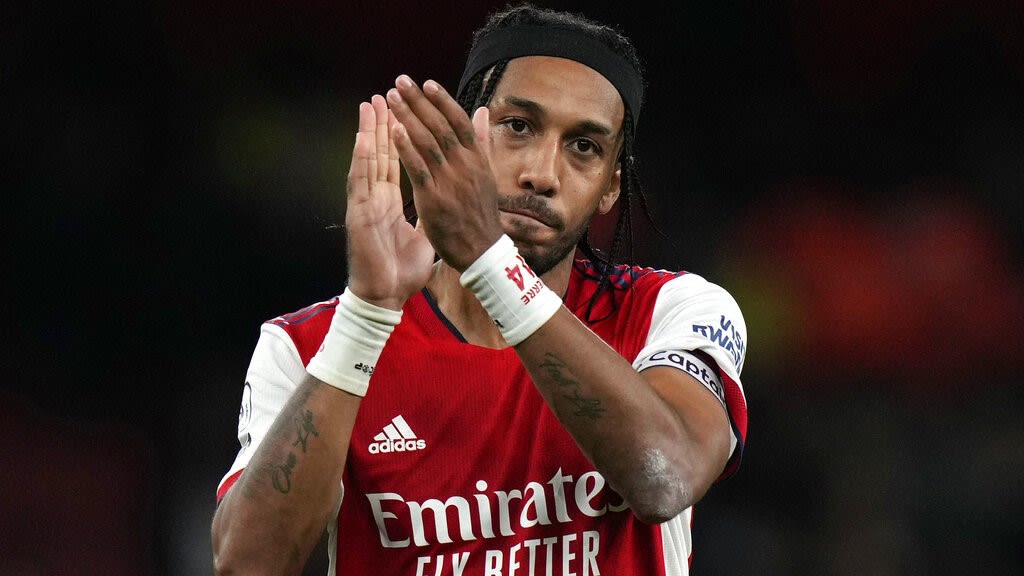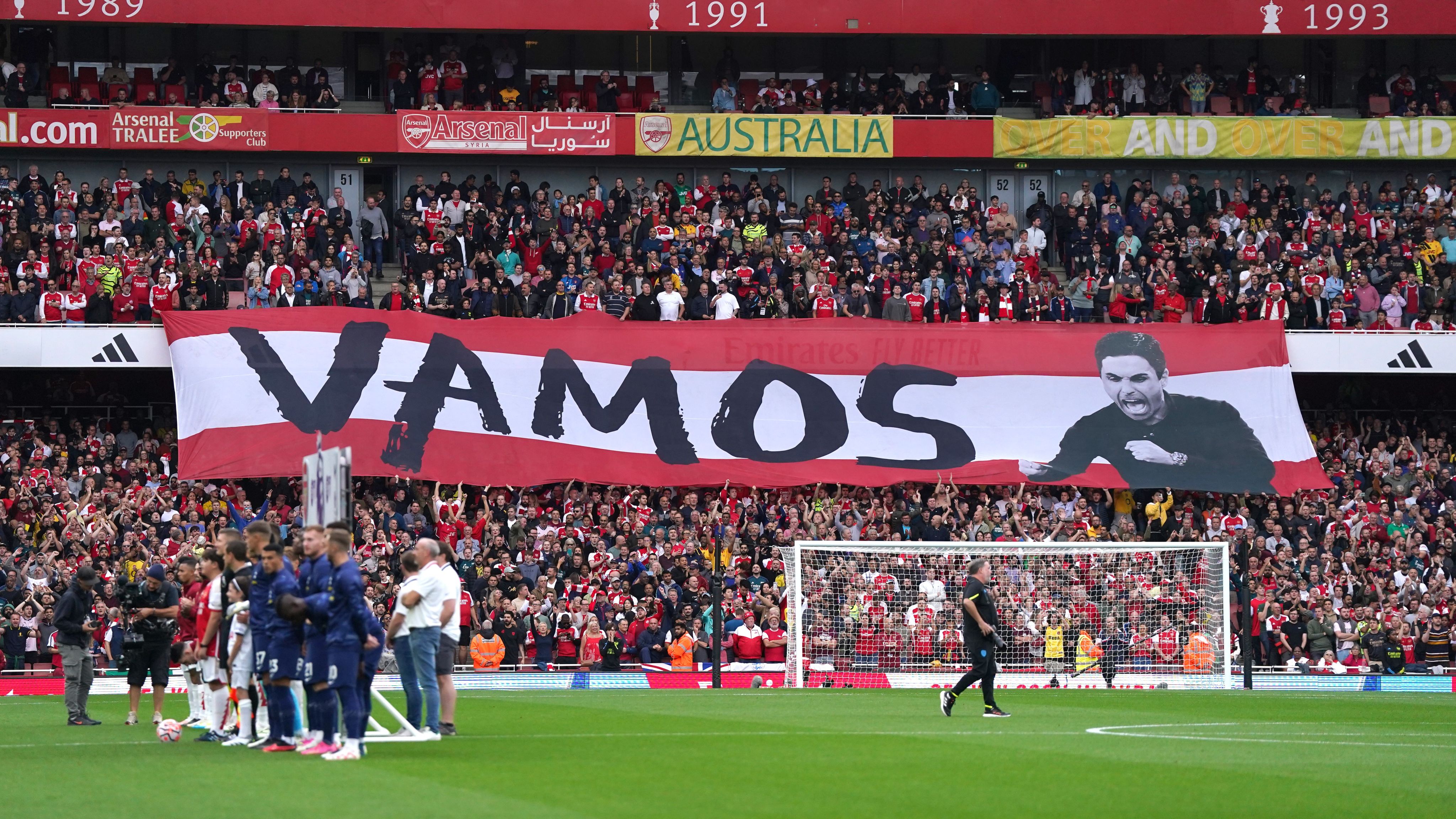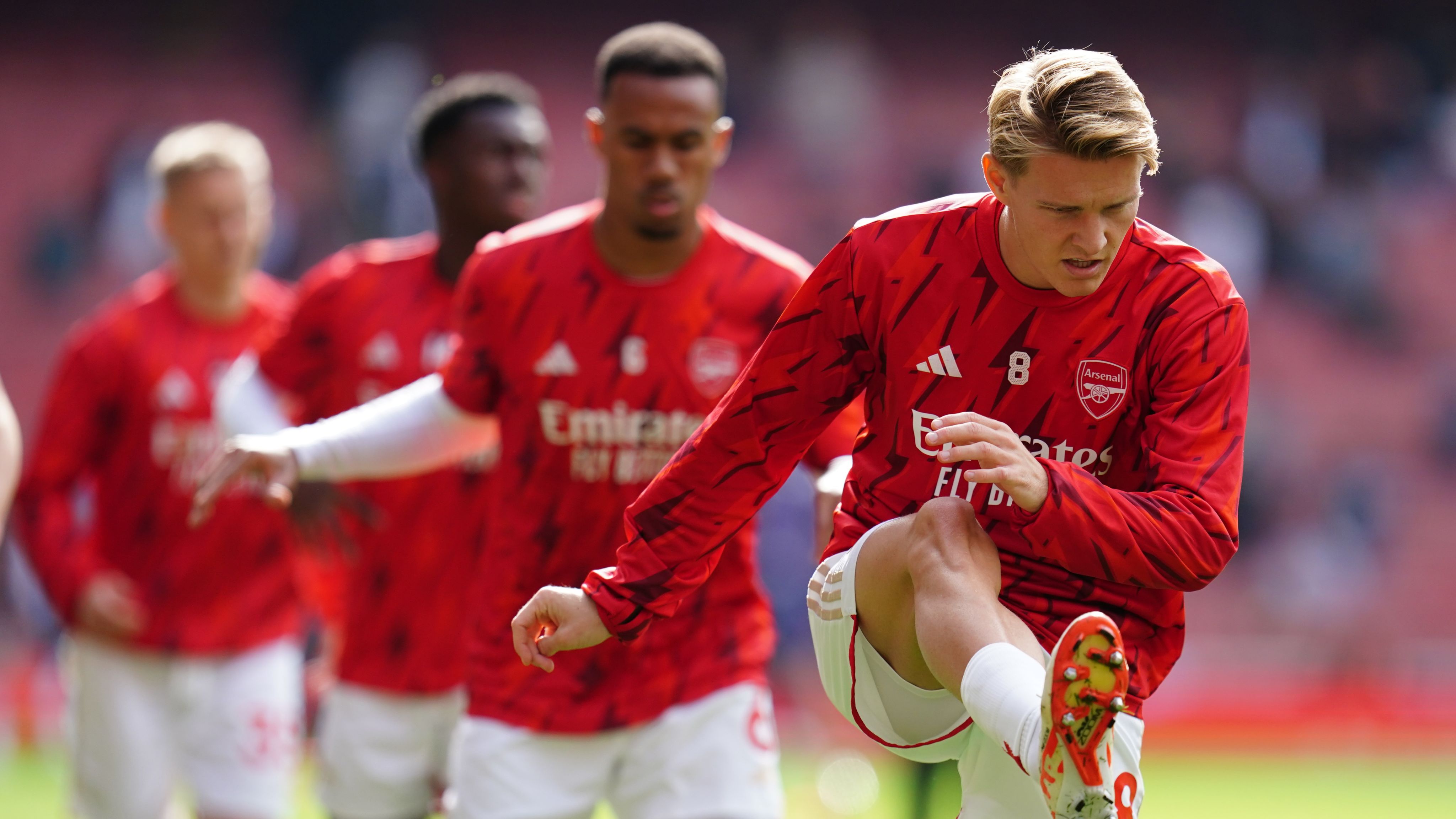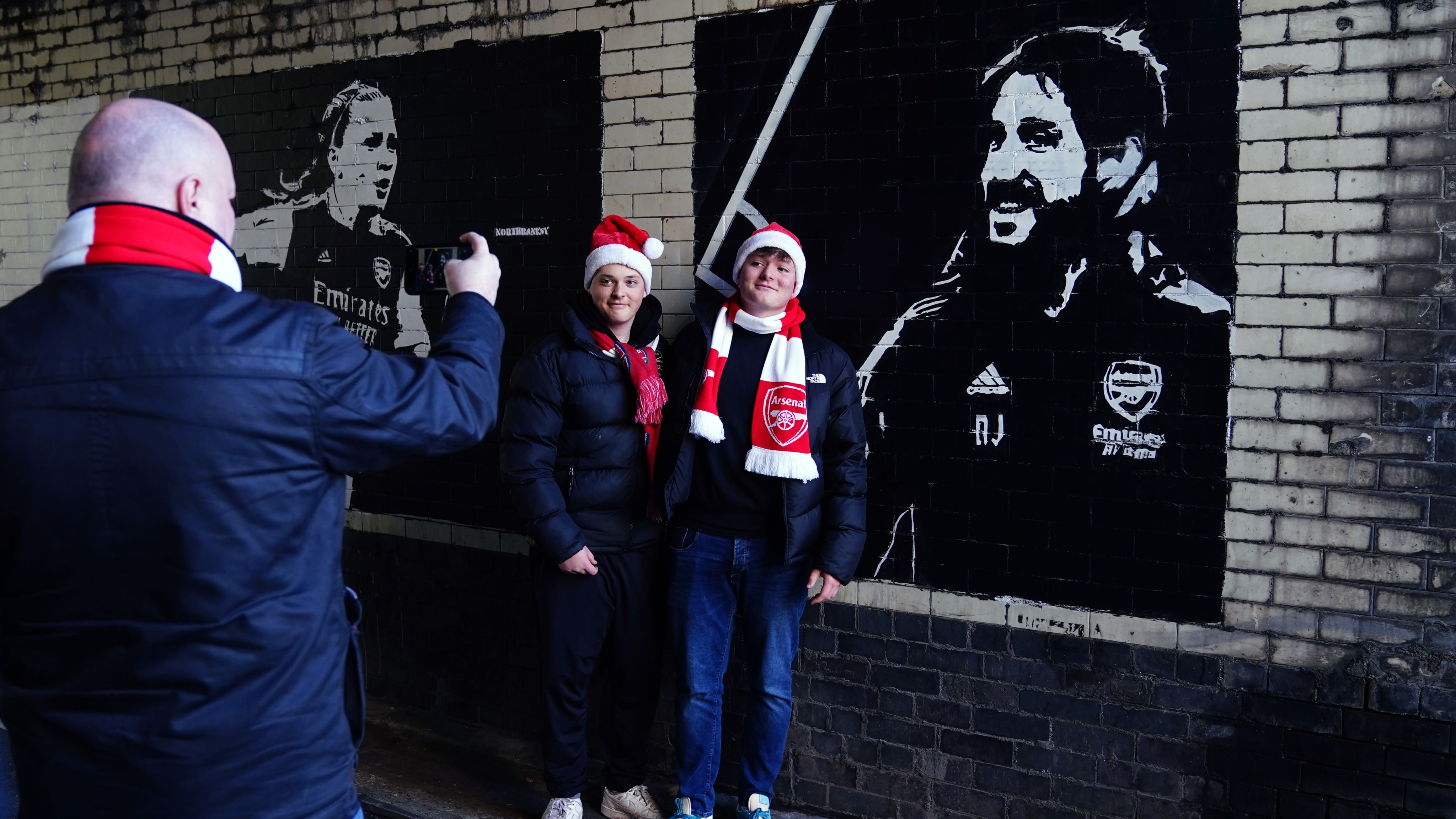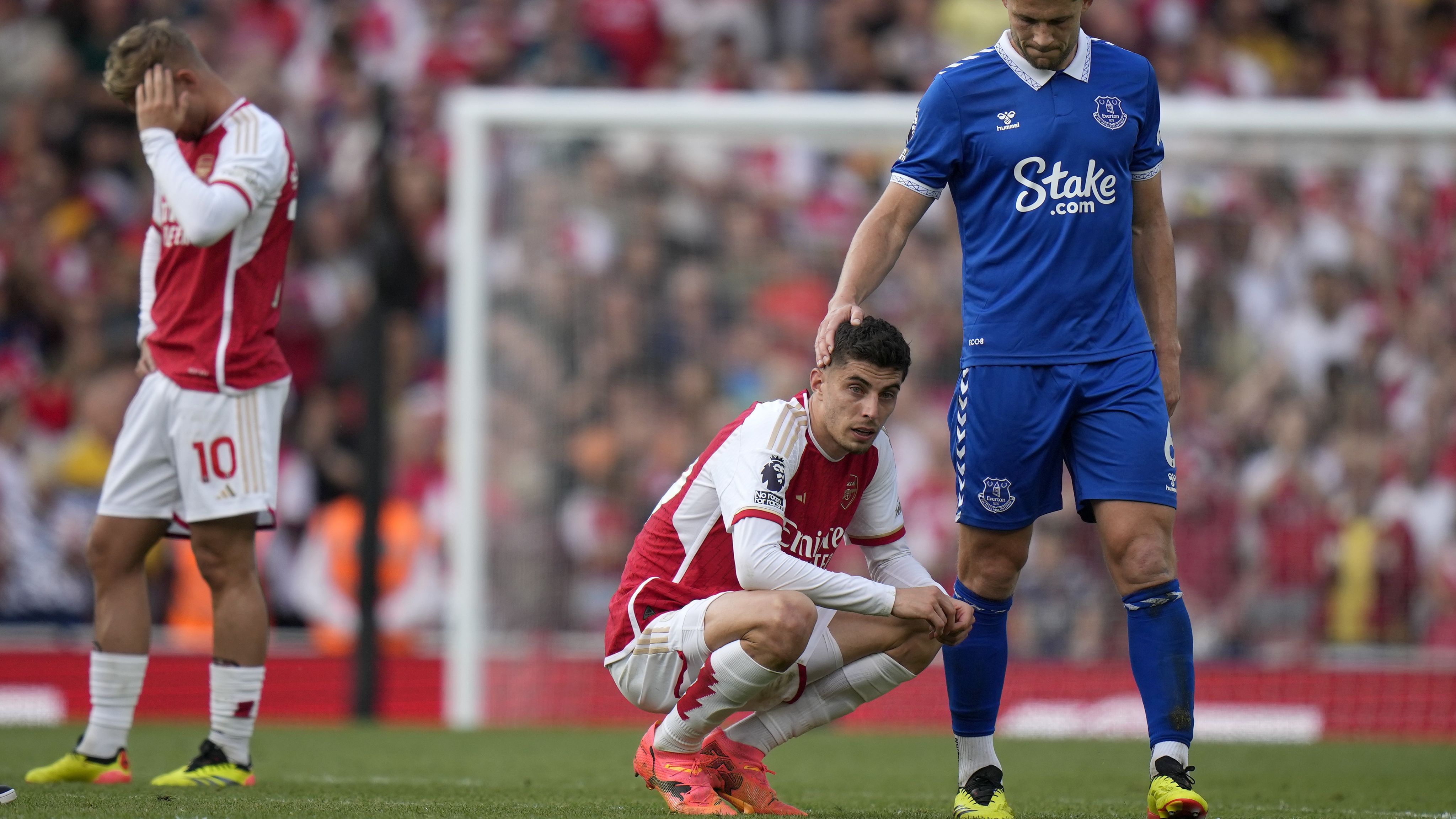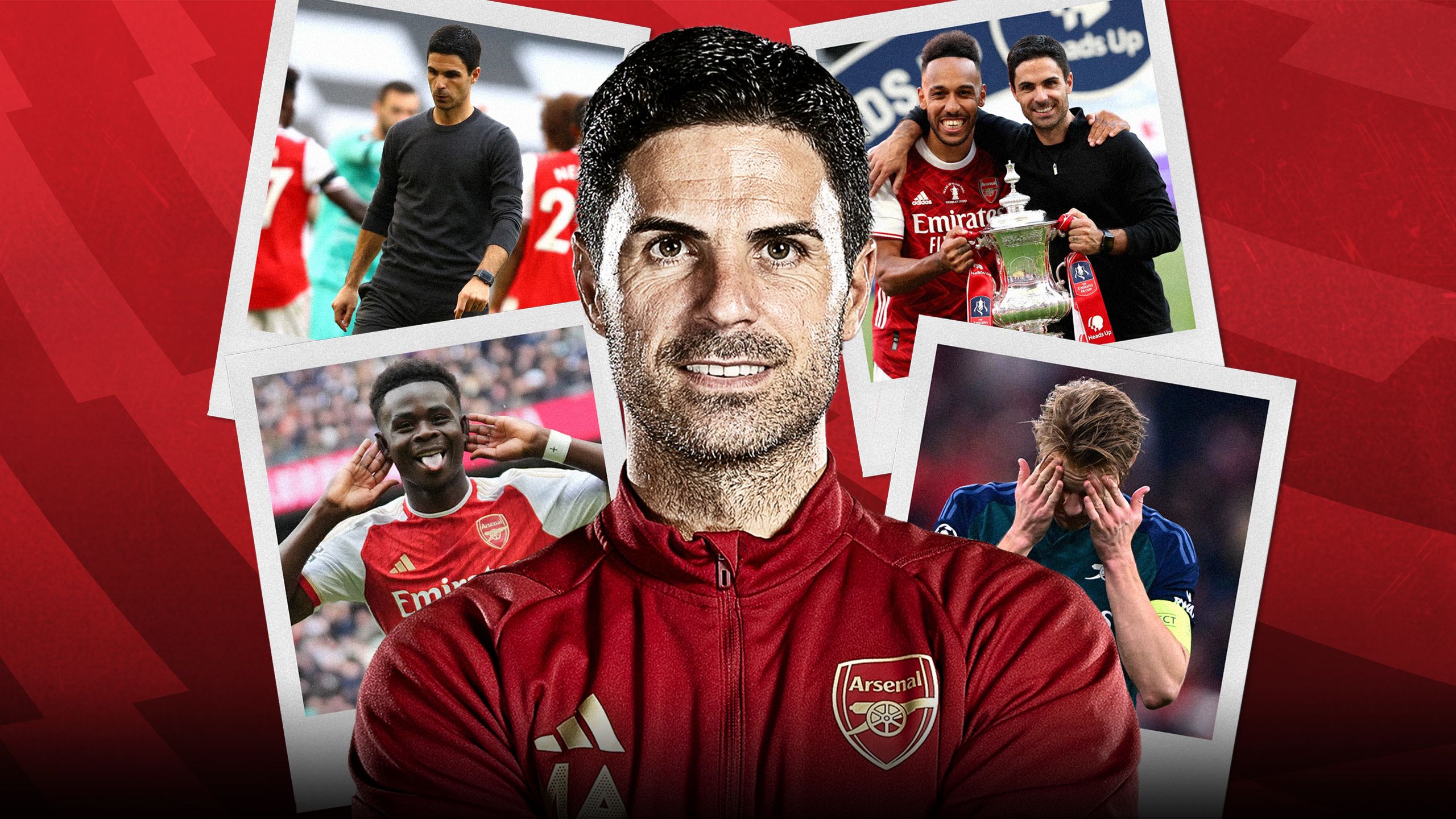
Five years of Mikel Arteta
How he has transformed Arsenal - and what comes next
Words by Nick Wright and Sam Blitz
This Friday, December 20, marks the fifth anniversary of Mikel Arteta's appointment as Arsenal manager, when the former midfielder arrived at the Emirates Stadium vowing to turn the club into major contenders again.
Arteta has transformed the Gunners from eighth-placed finishers into title-challengers over the course of an incident-packed reign, overseeing an exhaustive rebuild and lifting the club out of the malaise he found it in.
- Stream Crystal Palace vs Arsenal on Saturday with NOW
- Arsenal's upcoming fixtures | Live Premier League table
But lagging behind Premier League leaders Liverpool this season and having fallen just short of Manchester City in the previous two campaigns, can he take the next step and bring major silverware back to north London?
With exclusive insight from the man himself, as well as his players, we look back at the highs and lows of his tenure so far and ponder what comes next.

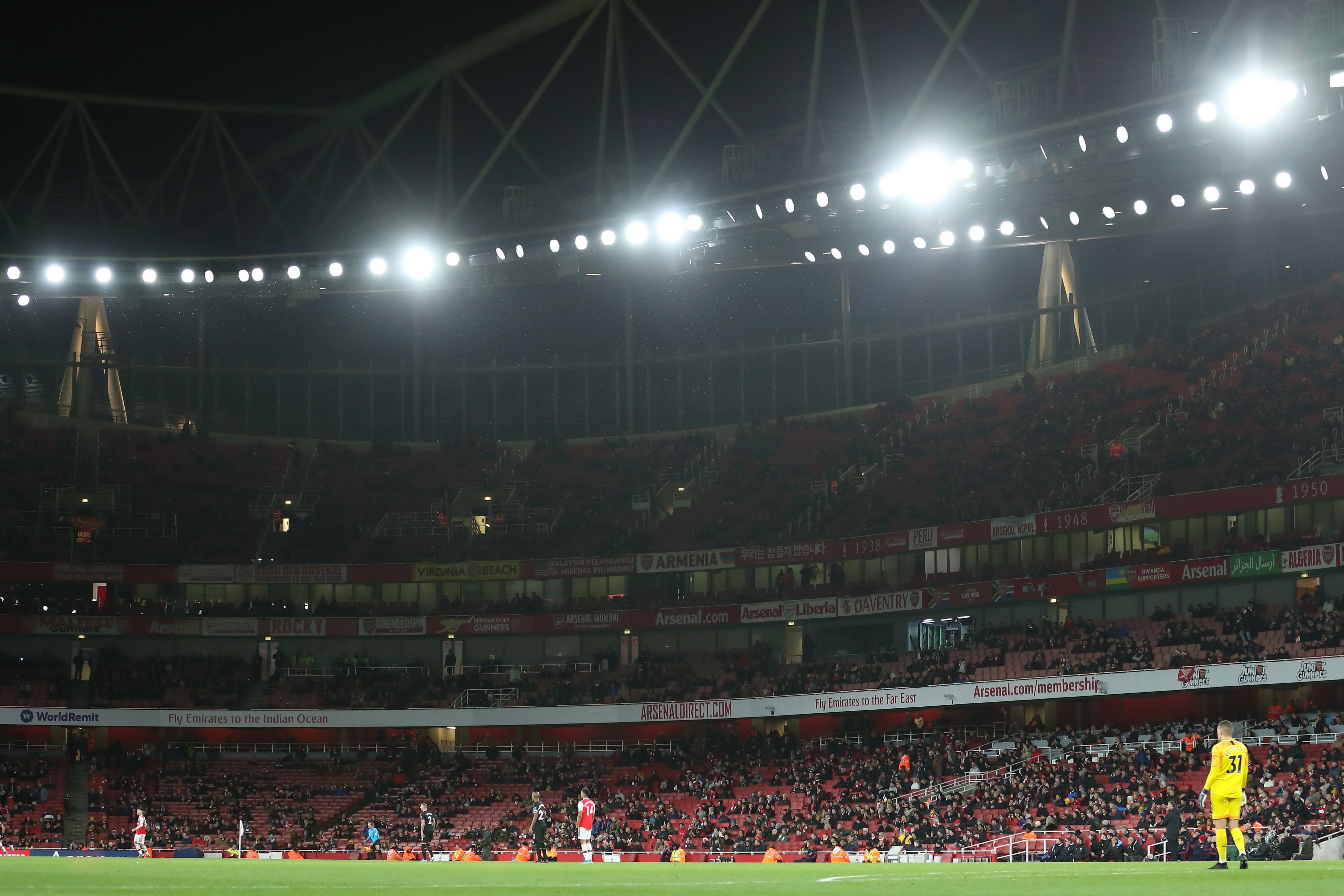
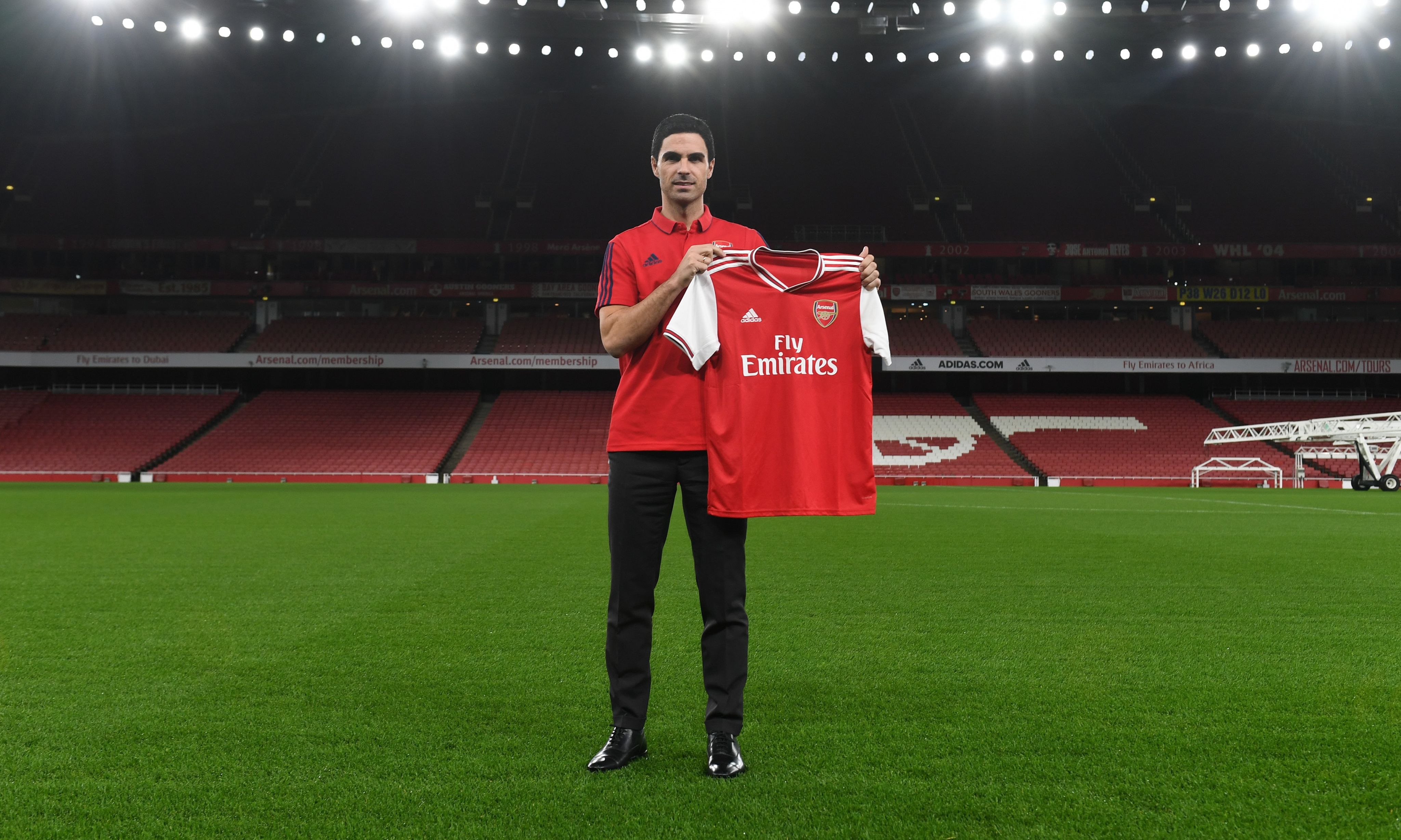
Stepping into the breach
A press conference, a pandemic and an FA Cup
Mikel Arteta knew the importance of projecting authority and self-assurance in his early days as Arsenal boss. New to management and only 37 years old, the former midfielder had a lot to prove.
Five years on, though, he offers a candid assessment of how it really felt to accept the role. "I was overwhelmed," Arteta tells Sky Sports.
"It was my first big job and it was in the middle of the season.
"I knew the difficulty of the situation."
He had seen it first hand.
Only five days before his appointment on December 20, 2019, Arteta had sat alongside Pep Guardiola in the away dugout at a subdued Emirates Stadium dotted with empty seats to watch his Manchester City side breeze to a 3-0 win in a game which underlined just how far Arsenal had fallen.
The defeat, inflicted with embarrassing ease by the visitors, left the Gunners ninth in the Premier League table having only won one of their last 12 games in all competitions. With Unai Emery sacked and Freddie Ljungberg in interim charge, the club and its fans desperately needed a fresh start.
"There were rumours about Mikel coming and I was thinking, 'Don't do it to yourself, don't do it to your career,'" Arsenal fan and broadcaster Clive Palmer tells Sky Sports. "This place is a mess right now. The fans have lost faith and it's your first job. Are you sure?"
Arteta would later reflect on his sadness at seeing Arsenal at such a low ebb that night at the Emirates. "The soul of the club had been lost," he said last year. But the experience also showed him the need to prioritise "changing the energy", something he outlined in an impressive opening press conference in which any feelings of overwhelm were well concealed.
Mikel Arteta in his first press conference in December 2019: "We have to try to engage everybody. We have to build a culture that sustains the rest."
Mikel Arteta in his first press conference in December 2019: "We have to try to engage everybody. We have to build a culture that sustains the rest."
"I travelled up to Liverpool for our game against Everton the day after that press conference and there was a buzz on the train, just from the things he had said and the clarity of communication," Tim Stillman, an Arsenal fan and journalist, tells Sky Sports.
"It seemed very clear to me that he had prepared for this role for a long time," adds Palmer. "To talk the way he did showed somebody who had been studying leadership and organisation improvement. He knew his task was to unite people. To have that level of authority in his first press conference shook me.
"It was clear to me he was not just as a manager, he was a leader. Leaders bring people together and he did that from minute one. That’s what made people think, 'Hold on, what have we got here?' That was a key moment."
Arteta was a spectator for that game against Everton, watching the two sides play out a goalless draw from the Goodison Park director's box alongside now-departed sporting director Edu before taking charge of the team for the first time against Bournemouth on Boxing Day.
Mikel Arteta's starting line-up for his first game in charge, a 1-1 draw with Bournemouth on December 26, 2019
Mikel Arteta's starting line-up for his first game in charge, a 1-1 draw with Bournemouth on December 26, 2019
His starting line-up for that trip to the Vitality Stadium, which also ended in a draw, underlines the extent of the overhaul that followed. Bukayo Saka, who was playing at left-back, is the only player still at the club today.
At that point, though, Arteta worked with what he had. And, for all the surgery that needed to be done on the squad, he insists, even now, that he was helped by the enthusiasm that met him within the club.
"The best feeling was coming to Colney, to the training ground, and seeing a lot of familiar faces, with big smiles and bright eyes," says Arteta. "That told me that I was welcome here, that they believed that I could help them."
His task became even tougher with the unprecedented circumstances brought by the pandemic, which hit only a few months after his arrival. But that interrupted first season ended on a trophy-winning high as Arteta's side produced superb defensive performances to beat Manchester City and Chelsea on their way to lifting the FA Cup.
Arsenal fought back from a goal down to beat Chelsea 2-1 in the 2020 FA Cup final
Arsenal fought back from a goal down to beat Chelsea 2-1 in the 2020 FA Cup final
Mikel Arteta poses with the trophy alongside Pierre-Emerick Aubameyang
Mikel Arteta poses with the trophy alongside Pierre-Emerick Aubameyang
"What he did in that first season was to use a set of players in a way that maximised them, which was really quite smart," says Palmer.
"We were having many discussions around whether that was really the way he wanted us to play. But it was about making the best use of his resources to allow us to win the FA Cup, which I think was a good indicator that he was a fantastic coach."
Stillman adds: "Weirdly, given it was behind closed doors, it was quite a unifying event for Arsenal fans. We knew they weren't going to turn into a title-winning team overnight but it was really valuable in terms of getting people's buy-in and maybe maintaining that faith when things got wobbly."
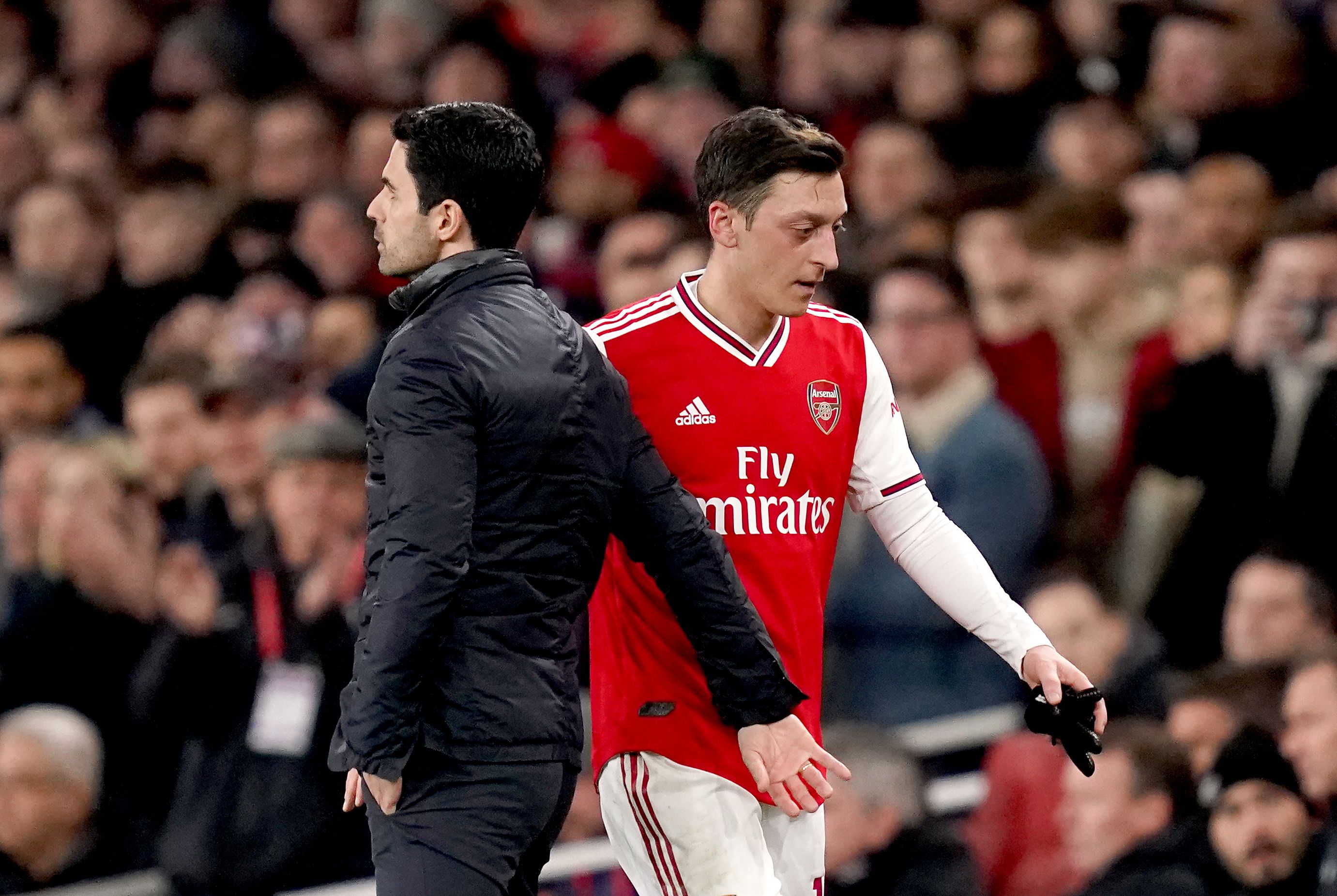
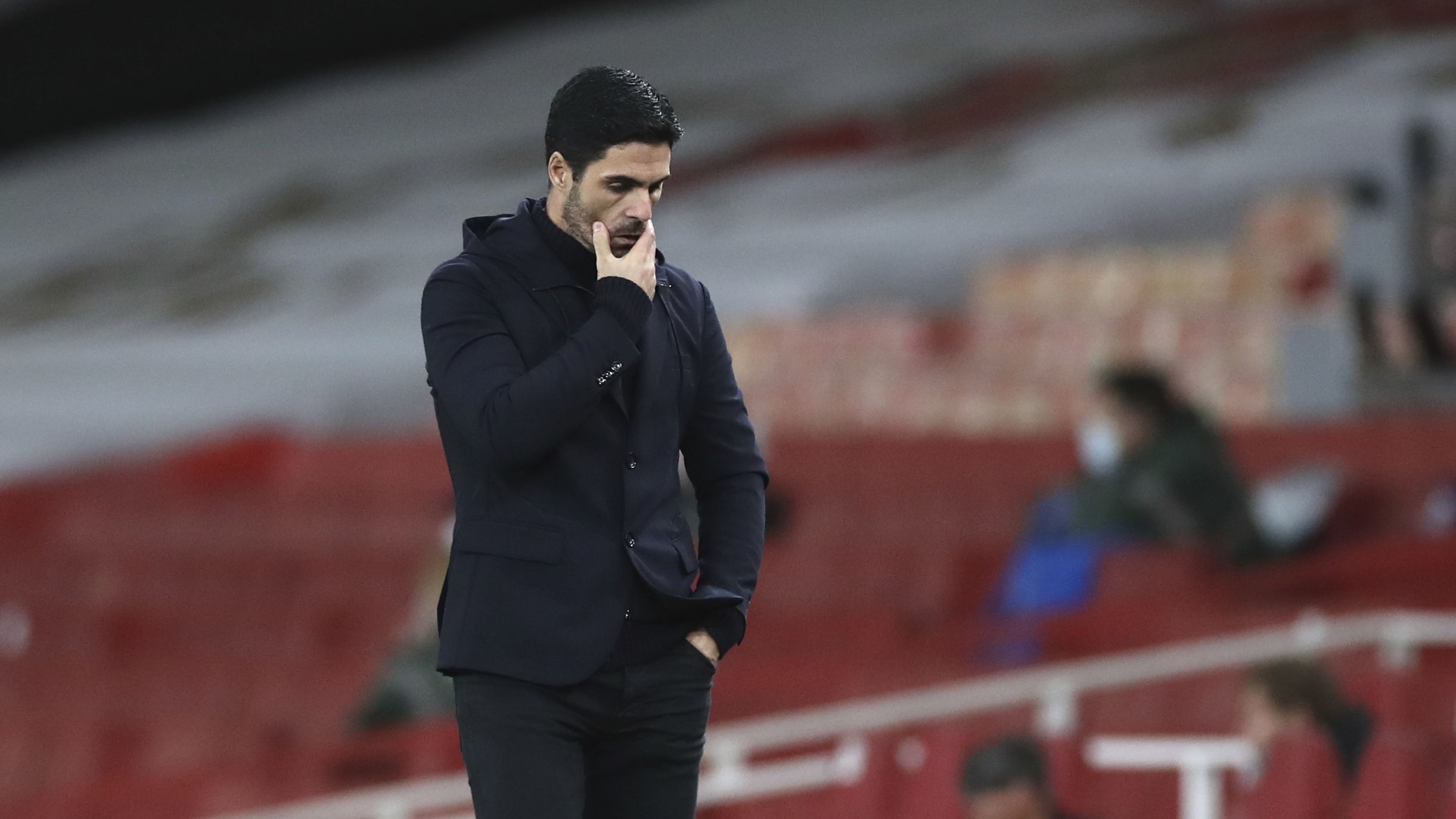
The clear-out begins
Fighting fires and cancelling contracts
Wobbly is an understatement.
Six months after the FA Cup victory, Arsenal hit their biggest low under Arteta.
On Christmas Day 2020, Arsenal sat 15th in the Premier League table following a run of one win in 10 games. Not even Emery had sunk to those levels.
"If he had been sacked in about November or December of that season, I don't think he could have complained," Stillman recalls.
"I think a couple of things saved him. Firstly, there wasn't really a market for managers. A lot of clubs didn't sack managers during those Covid times due to uncertain finances. And secondly, the fact that fans weren't in stadiums.
"I'm looking across north London at the moment at Spurs. When they lost to Bournemouth recently, we saw that kind of visceral reaction towards Ange Postecoglou. That might have happened to Arteta."
The cancellation of multiple contracts that season showed how imbalanced the Arsenal squad was, especially in terms of the profile of player Arteta wanted.
Henrikh Mkhitaryan, Shkodran Mustafi, Sead Kolasinac and Sokratis Papastathopoulos' deals were ripped up. The senior figures, and crucially the high earners, were deemed surplus to requirements by Arteta.
Sokratis Papastathopoulos was one of several high-earning players to have his contract cancelled
Sokratis Papastathopoulos was one of several high-earning players to have his contract cancelled
"When he first came in, he had a Europa League squad on Champions League wages," Palmer adds. "He had a lot of ageing players who were well-paid and spending their free time looking at where they were going to buy their next house, rather than looking at the winger they were playing against.
"I felt they weren’t focused on what was most important, which was the football. Arsenal felt like a place where you came and you didn’t have the same pressure as Chelsea.
"You didn't have to win, but you could earn and you could live in London. That's what it felt like to me, a vehicle for some people."
The big contract termination, however, came in the form of Mesut Ozil, once Arsenal’s record signing and darling under Arsene Wenger. His slide towards the exit door began in the FA Cup-winning season – and included a comical incident where he took on the club after it had made mascot Gunnersaurus redundant during the Covid times.
But the fact that Arsenal had spent more than six months trying to find a big name like Ozil a new club showed how difficult a job Arteta had in getting rid of the players he didn’t want, let alone bringing in his preferred profile of player.
"It was challenging but, in the end, you have to observe,” Arteta says. "Obviously, a lot of people had their opinions and thoughts, but you have to give opportunities to the right people.
"It's about certain contexts, clarity about what is expected, and then actions. It's great to say, 'we want to do this and achieve that'. But what are the actions we are actually taking to make this happen? You have to focus on that."
Mesut Ozil and Lucas Torreira were also let go by Mikel Arteta
Mesut Ozil and Lucas Torreira were also let go by Mikel Arteta
The overhaul was bigger than just letting players go for free. Matteo Guendouzi – another player whose attitude was publicly questioned by Arteta – joined Lucas Torreira in going out on loan. They were marquee signings under Unai Emery, but neither featured for the club again after that.
Even William Saliba – now one of the best players in his position in Europe – felt Arteta’s ruthless nature. The French defender, a £25m acquisition six months before Arteta arrived, spent some of the first half of the 2020/21 season with the U23s, before heading out to French side Nice on loan.
The treatment of Ozil, Guendouzi and others epitomised Arteta's non-negotiables. No matter the history or the hype, it was his way or no way.
"That was absolutely critical," says Stillman. "I think something had gone a little bit rotten in the club. That doesn't have to mean that everyone is outrageously behaved. Sometimes you just hit a bit of a lull.
"I really compare it to when George Graham came in in 1986. I think there are so many parallels about the former player coming back, having had experiences elsewhere, talking about lifting the standards and getting rid of some high-paid players who perhaps weren't as committed as they should have been, and replacing them with young players with younger energy.
"I think, at that point, that was almost the first thing that had to happen and what's great is that it's still consistent now. Even though Arsenal are at a much better level, Arteta still talks about those standards all the time."
There was a turning point for Arteta in that 2020/21 season. The Gunners hosted Chelsea on Boxing Day with the game branded as do-or-die for the manager. One more defeat, and his tenure may have ended after just one year. The subsequent four years may never have happened.
For that game, Arteta did not just roll the dice; he threw his set away and used a new one. A first Premier League start for Emile Smith Rowe as the No 10 gave Arsenal a freshness in attack. That game also saw Bukayo Saka start on the right wing for the first time that season.
Bukayo Saka and Emile Smith Rowe shone in the 3-1 win over Chelsea
Bukayo Saka and Emile Smith Rowe shone in the 3-1 win over Chelsea
Smith Rowe set up Saka for the third goal in the game
Smith Rowe set up Saka for the third goal in the game
Arsenal beat Chelsea 3-1 and it sparked a seven-game unbeaten run that saved Arteta’s job. But more importantly, it looked like Arteta was finally using the players he wanted at Arsenal. It was a nod of what was to come.
The early-season slump meant Arsenal had to settle for a second successive eighth-placed finish. This time, it meant the Gunners had failed to qualify for Europe for the first time since 1996, when the revolutionary figure of Wenger had to be hired to get the club back to the top level.
But with Saka and Smith Rowe leading the charge, things were looking up. Another addition in the attacking midfield role accelerated the progression of Arteta’s Arsenal even further.
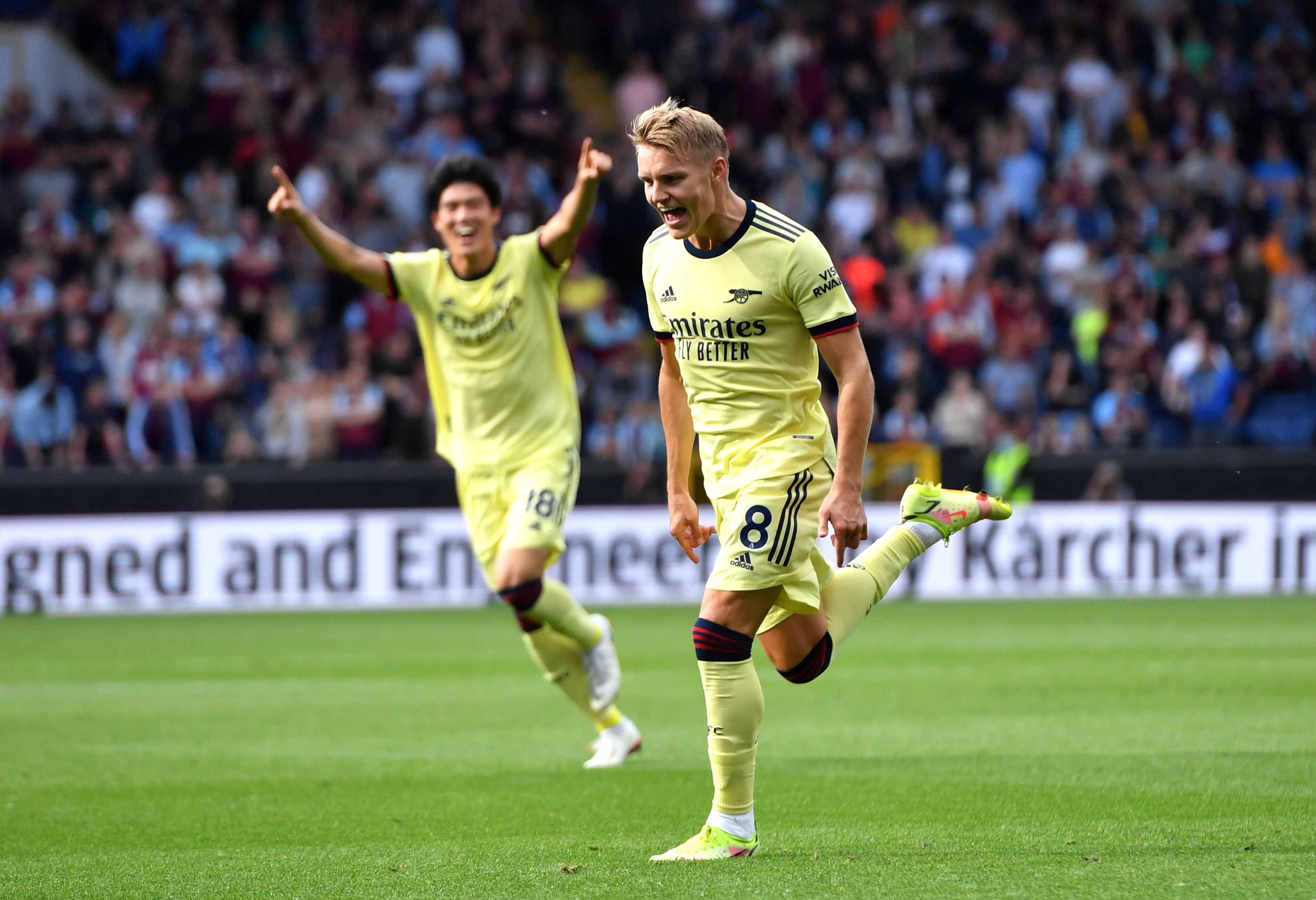
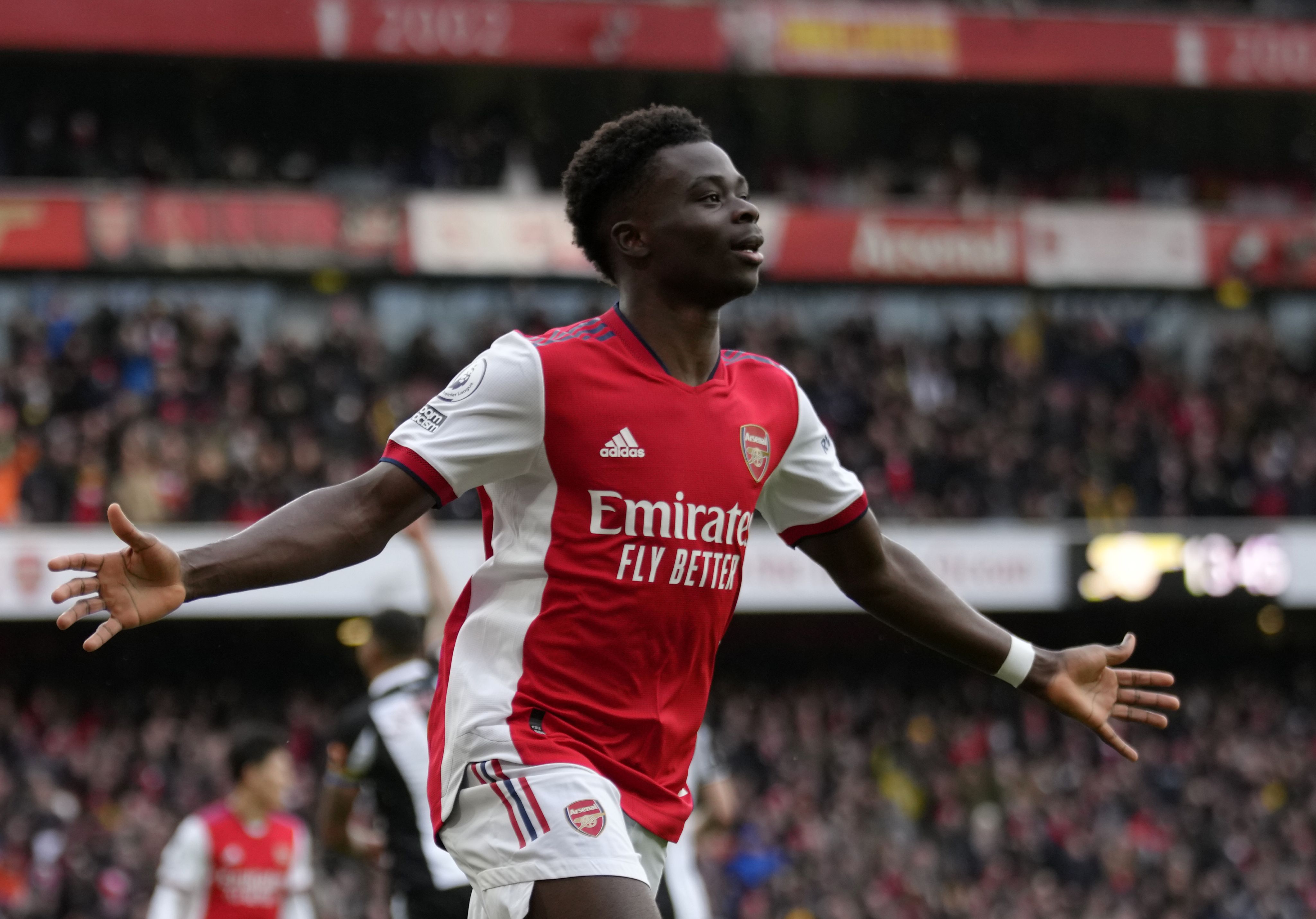
'We saw a different future'
Odegaard's arrival and a new transfer policy
Odegaard had offered glimpses of his quality while on loan from Real Madrid in the second half of the 2020/21 season. But it was only after signing permanently that summer that his true value to Arteta and Arsenal became clear.
His arrival, together with those of Ben White, Aaron Ramsdale and Takehiro Tomiyasu, as well as Nuno Tavares and Albert Sambi Lokonga, signalled a change in the club's transfer policy. All the signings were aged 23 or under. There was an emphasis on lowering the age profile of the squad.
"The club decided to project forward, and really say, 'we're doing something different'," says Palmer. "The message was, 'we're trying to increase our squad value and allow this team to develop'. That was really important because it made people think, 'we may not win immediately, but I know what we are trying to achieve'."
The plan had been laid out to Odegaard in discussions over his potential permanent transfer. Back-to-back eighth-placed finishes did not scream progress but the Norway international was in no doubt about the club's trajectory under Arteta.
Martin Odegaard reflects on his time at Arsenal and insists they are ready to win trophies
"I came here on loan and we were struggling a little bit, with a lot of noise around the club," Odegaard tells Sky Sports. "We didn’t perform as well as a club like Arsenal should.
"But I believed so much in the project. After speaking to Mikel and the club and seeing what was going on around here, I was convinced that this club was going in the right direction and he was a massive part of that.
"Everything he said to me, how he wanted to do things on and off the pitch, and how he wanted to build the club was really fascinating and one of the key reasons I came."
Arteta had outlined his own confidence publicly as well privately, insisting in a press conference earlier that year that it was only a matter of time until the project went 'bang'.
"It was the people who made me realise that," says Arteta. "When I see enthusiastic people who are very capable and are willing to give their lives to get something done, something good has to happen.
"We have very intelligent people, great ownership, a history and a fanbase which is unbelievable. We have to have a little bit of patience and understanding that we are not going to get there as quickly as we want. But I think we are going to be okay."
That patience was tested again back in 2021 as Arsenal started their campaign with losses to Brentford, Chelsea and Manchester City, a run which left them bottom of the Premier League table with no goals scored and nine conceded.
Granit Xhaka was sent off in a 5-0 loss to Manchester City in August 2021
Granit Xhaka was sent off in a 5-0 loss to Manchester City in August 2021
Arteta had to withstand more criticism. "Maybe he was holding on a little bit," recalls Stillman. But soon, when their injuries began to clear up and Odegaard returned to the side having missed the first two of those defeats, Arsenal started to climb the table. The team was young, exciting, and had a new leader on the pitch.
"Odegaard wasn't actually appointed captain until after Alexandre Lacazette left but I think you could see a captain there immediately," says Stillman.
"He was certainly the technical leader. I think he really embodies what Arteta wants on the pitch in every phase of play and I think he is by far the most important signing under Arteta. At £35m, a real steal as well."
Pierre-Emerick Aubameyang had his contract cancelled following disciplinary breaches
Pierre-Emerick Aubameyang had his contract cancelled following disciplinary breaches
The decision to sideline Pierre-Emerick Aubameyang and strip him of the captaincy was not universally popular but the team developed rapidly without him, their progress highlighted by the manner in which they went toe-to-toe with Manchester City on New Year's Day. The game ended in a painful 2-1 loss but this time it felt different.
"We were concerned that day about how it would go, but the way we played was outstanding," says Palmer. "From that game, I think we saw a different future. We saw what we could do. Arteta was introduced to us as Pep’s protégé, so to do so well against his team was to say, 'okay, we can do something similar from a playing style point of view'. We were very unfortunate to lose."
The youthful enthusiasm of Arteta's new-look side was mirrored in the stands at the Emirates Stadium. The atmosphere on matchdays was transformed. Under Arteta, the connection between players and fans had been rebuilt.
"What we now see in the stadium on matchdays, that comes from him," says Palmer. "It's the club that puts it all together but he’s driving it. Everyone likes to be included, to feel important, and he recognises that."
"That season is really where everything starts," adds Stillman. "We saw better transfers and the post-Covid context was important. Fans were back in the stadiums and feeling excited. It felt like a few things coalesced and the penny dropped for most us. We thought, 'okay, now we see the vision'."
The campaign would end in a disappointing fifth-placed finish as Arsenal narrowly missed out on Champions League qualification to Tottenham. But Arteta signed a new contract and a brighter future beckoned. His side were on the cusp of their next step.
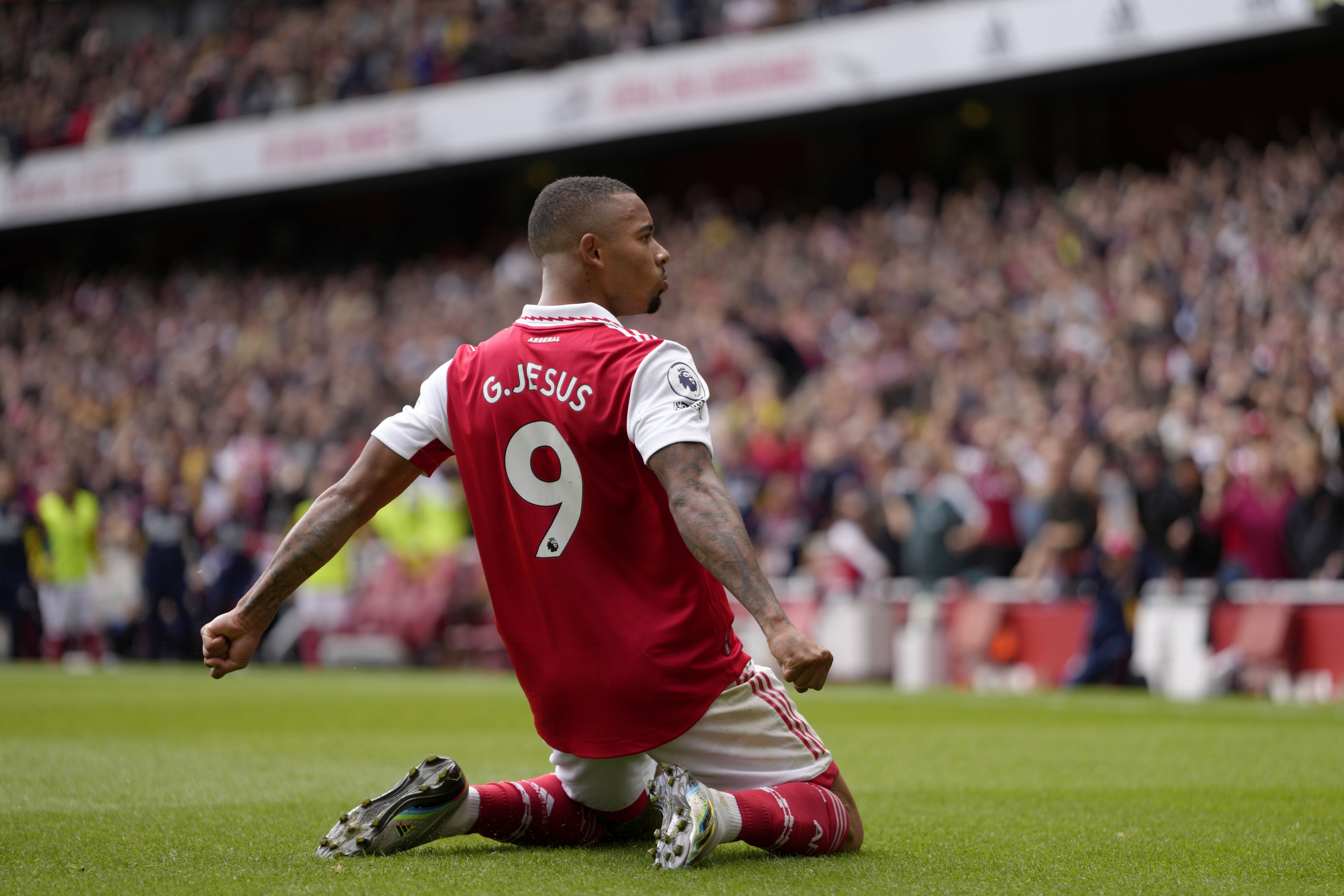
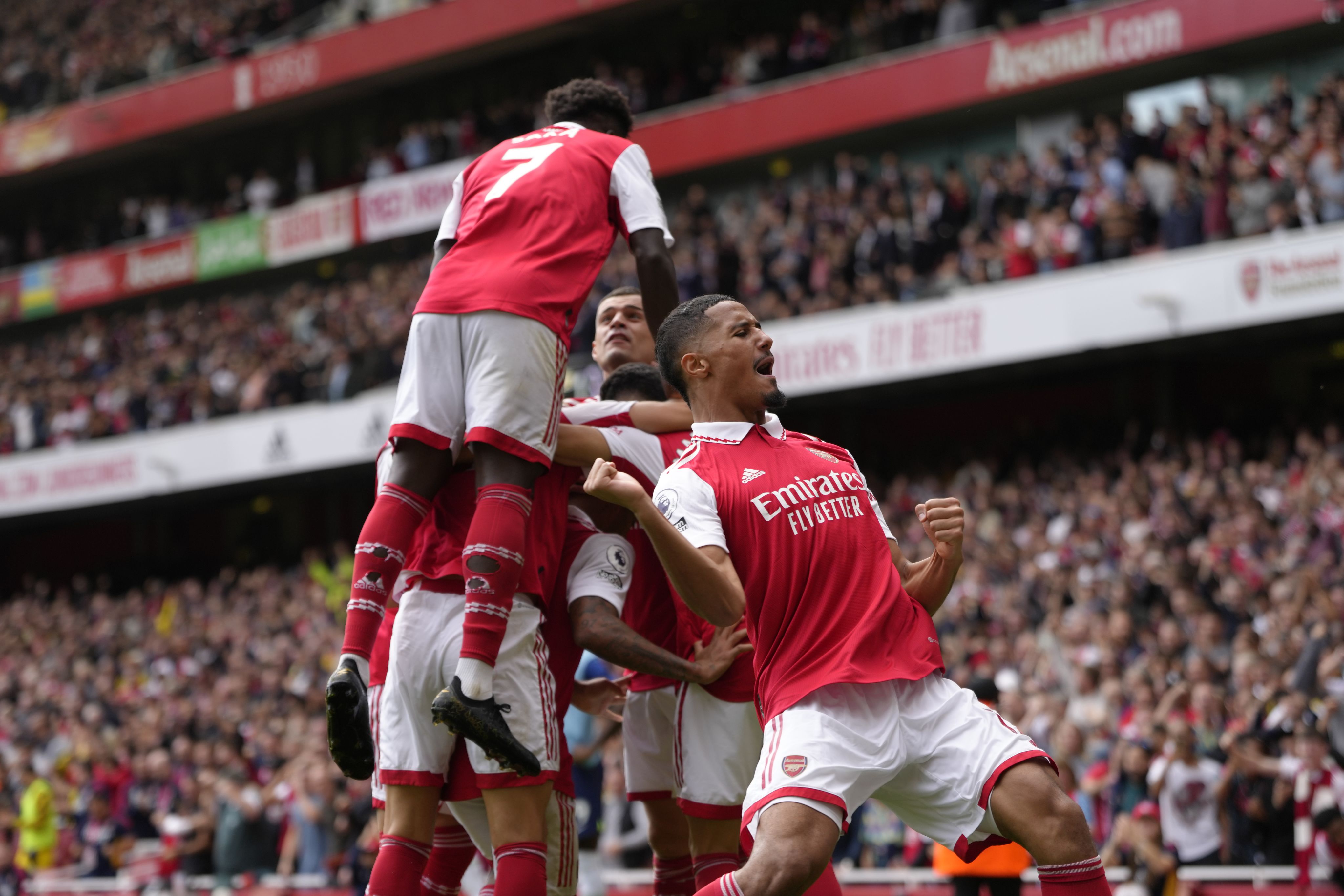
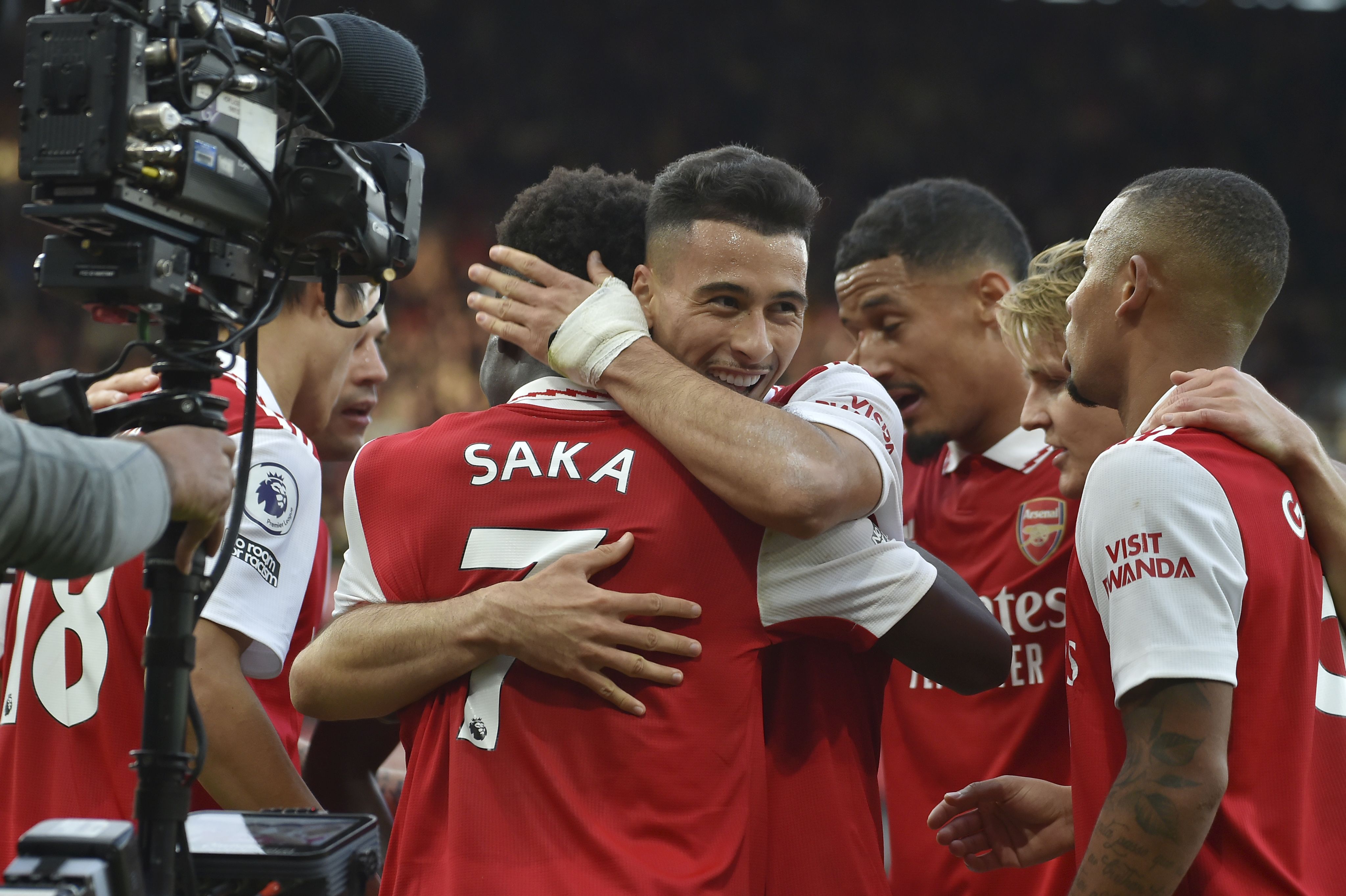
Hitting new levels
Time for a title tussle
Arteta had his new contract, he had the fans on side, and academy players such as Saka and Smith Rowe were fully integrated. All he needed was a team ready to challenge.
Arsenal may have been ousted by Tottenham in the battle for fourth in 2022 but strides were made in the subsequent season that put them beyond not only Spurs – but most of the Premier League.
The main two arrivals that summer were Gabriel Jesus and Oleksandr Zinchenko, both pinched from Manchester City, with winning experience in tow. Arteta would go on to say that the pair “changed our world”.
"That showed what City thought of us in that period," recalls Palmer.
"But from the moment Jesus and Zinchenko came along, they brought a different belief and they brought the final parts of our playing style.
"It really did change things. Our belief went up and suddenly the art of the possible changed."
There was another big addition in the integration of Saliba, the pacey centre-back who moved Arsenal 10 to 15 yards further up the pitch.
All of a sudden, Arsenal could get complicated.
Zinchenko’s arrival meant the Gunners adopted a regular inverted left-back for the first time. Jesus connected to create a front three with Saka and Martinelli, all of whom hit double figures for goals that term, while even Xhaka was among the top scorers.
Arsenal began the 2022/23 season winning 10 out of the first 12 Premier League games. Suddenly, the picture changed. They were in a title race that would last for most of the season. Arteta had transitioned from a manager who got by with what he had, to one ready to delve into the specifics.
"It's hard to describe what makes him a special coach as he has so many qualities, but I think it's the attention to detail that I haven’t seen anywhere else in football," says Odegaard, who was also made Arsenal captain that summer.
"There are so many things he will tell you that you have never really even thought about that just make sense when he explains them to you.
"I think his understanding for the game, all the details he sees, and his ability to get the team and club working together and in the same direction are his best qualities. He is unbelievable.”
Arsenal lost the title that season as injuries to Jesus and Saliba, coupled with another undefeated Manchester City run-in, saw Guardiola pick up the crown again. But Arteta responded by adding more layers to the team, his ruthlessness coming to the fore again.
Declan Rice arrived despite Thomas Partey being a crucial midfield lynchpin. Jurrien Timber, who albeit succumbed to an early season long-term injury, threatened Ben White and Zinchenko’s spots at full-back. Fan favourites such as Tierney and Smith Rowe were relegated to back-up options.
The most ruthless move came in the goalkeeper spot. Aaron Ramsdale was named in the Premier League Team of the Year but David Raya arrived and the England international barely played again. Arteta again focused on the specifics he wanted between the sticks.
"When you come to Arsenal and he tells you how he sees football, you feel like you never knew football before," Raya tells Sky Sports.
"That's how crazy it is for every player who has come to Arsenal. I spoke to Declan Rice when I came and he said the same thing. 'When I came here, I didn't really know football, I didn't know how to play football.'
"That's how impressive Mikel is in the way he sees the game differently, and I think you can see on the pitch how good he is too. He's incredible. He's a great manager and a great guy and he pushes you to the limit to be better."
His desire to push Arsenal to their limits and maximise every possible part of the game is best summarised by their set-piece prowess.
In Arteta’s first full season in charge, they scored the third-fewest goals from dead-ball scenarios in the Premier League. Now, with the help of set-piece guru Nicolas Jover, they have 23 Premier League goals from corners in 18 months.
"The thing I most value about Arteta's management is his desire to push every single margin and respect every single facet of the game," says Stillman.
A mural of Arsenal's set-piece coach Nicolas Jover near the Emirates Stadium
A mural of Arsenal's set-piece coach Nicolas Jover near the Emirates Stadium
"We didn't have that for too long at Arsenal and people made fun of us for being weak, for being bad at set-pieces.
"It has now come to the stage where people make fun of Arsenal for how good they are at set-pieces, but for too long we didn't respect those parts of the game.
"I think Arteta knows the level of competition such that you have to be outstanding at everything to have a chance of winning anything and that's what I really value from his management."
Arsenal got closer to the Premier League title last season but not close enough. City pipped them on the final day by two points. Still, though, Arteta continues to mould his squad and strive for improvement.
Kai Havertz shows his dejection after missing out on the title on the final day of last season
Kai Havertz shows his dejection after missing out on the title on the final day of last season
Kai Havertz was one of the top duel-winners in 2024, so he signed another in Mikel Merino, who won more duels than any player in Europe in the most recent campaign.
"To be at his level, you have to have many strengths," says Merino to Sky Sports. Two of the biggest for me are the desire to win, that killer mentality that he has that we as players have to develop and want to develop to win games.
"And also the attention to detail. There isn’t a single detail in the training session where he doesn’t take a look. That makes him such a good coach."
Is Arteta's Arsenal squad now close to completion? "He has got the right team now, and he has built players into world-class players," Reiss Nelson, who started Arteta's first game in charge in 2019 and is now on loan at Fulham, tells Sky Sports.
"He has done an amazing job. Congratulations to what he has achieved there."
"When you come to Arsenal and he tells you how he sees football, you feel like you never knew football before. He's incredible. He pushes you to the limit to be better"
David Raya on Mikel Arteta
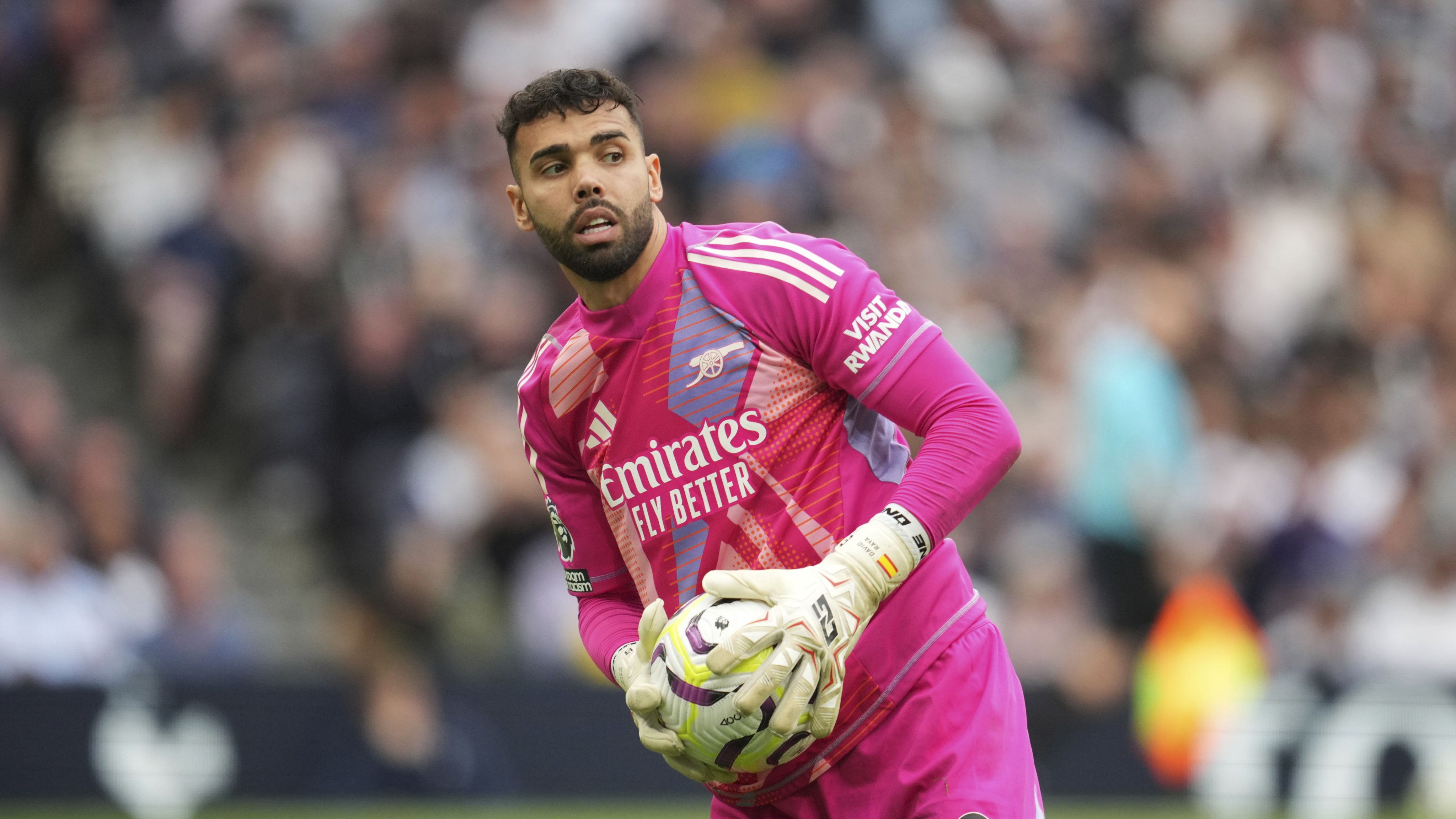
What next for Arteta's Arsenal?
Next steps, silverware and legacy
The new season has been challenging for Arteta. Arsenal are lagging six points behind pace-setters Liverpool in the Premier League. After five years of steady improvement, there is, for the first time, a feeling that the progress has stalled.
Arteta will hope the feeling is only temporary. Arsenal have faced adversity in the form of injuries and red cards this season and have proven their capacity to embark on winning runs. The upcoming January transfer window also offers an opportunity to strengthen the side's attack.
The Premier League crown is not their only target, either. Arsenal are still fighting on four fronts having claimed their place in the Carabao Cup semi-finals with their win over Crystal Palace on Wednesday night. Arteta believes one trophy could serve as a catalyst for more.
"It generates belief," he says. "Experience of having been successful helps you with the other ones. If you have everyone on their feet, and maintain that everyone is still willing, it has that effect and that is what we have to do."
Arteta is well aware of the importance of that next step. His entire project has been geared towards winning silverware. The legacy of this Arsenal side depends on it.
"We don't want to become Mauricio Pochettino's Tottenham, a good team who didn't win anything," says Stillman.
"I have that fear, definitely. We're at a must-win kind of phase of the project, as it were. Winning the Carabao Cup or the FA Cup, if we can't do the league this season, is critical because you look at the team that won the 2020 FA Cup and almost none of them are still here.
"This group needs to get that feeling. Yes, ultimately we want the bigger trophies, but I think winning a domestic cup this season has to be a priority."
Palmer adds: "Trophies don’t always save you. Winning a couple of trophies didn’t save Erik ten Hag. Your progression in the league is really important.
"But on top of that, it's important for these players to win. That needs to happen and whether it’s in Europe, in the FA Cup, in the league, I’m not too fussy. I think it’s just important to have that day because I think we will learn how to win and the floodgates will open.
"If you look at the age profile of the squad, we are right in that period where we should be winning, now and for the next three years, if we get it right. This is the moment."
Their recent slip-ups have not deterred the players.
"I think everyone around the team is really confident," says Odegaard. "I think you get that confidence from what you see here every day.
"We come in, we work hard. Everyone is always pushing to be better. Even after a 5-1 win, we speak about what we could have done better. That just gives you the feeling that we are on a good path. Everyone wants to be better all the time and we want the same thing. It's what we are pushing for."
The hope now is that their pushing will pay off; that they will have silverware to show for all their progress over the last five years. But what seems certain is that Arteta will continue to hold his players to exacting standards.
"Some people are never satisfied, whereas some people are satisfied very quickly," he says with a smile when asked about the potential impact of winning a trophy. "So that is something to watch."
Five years on, there is no letting up from Mikel Arteta.

